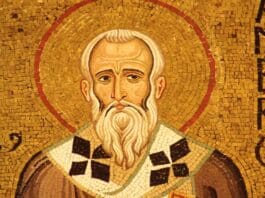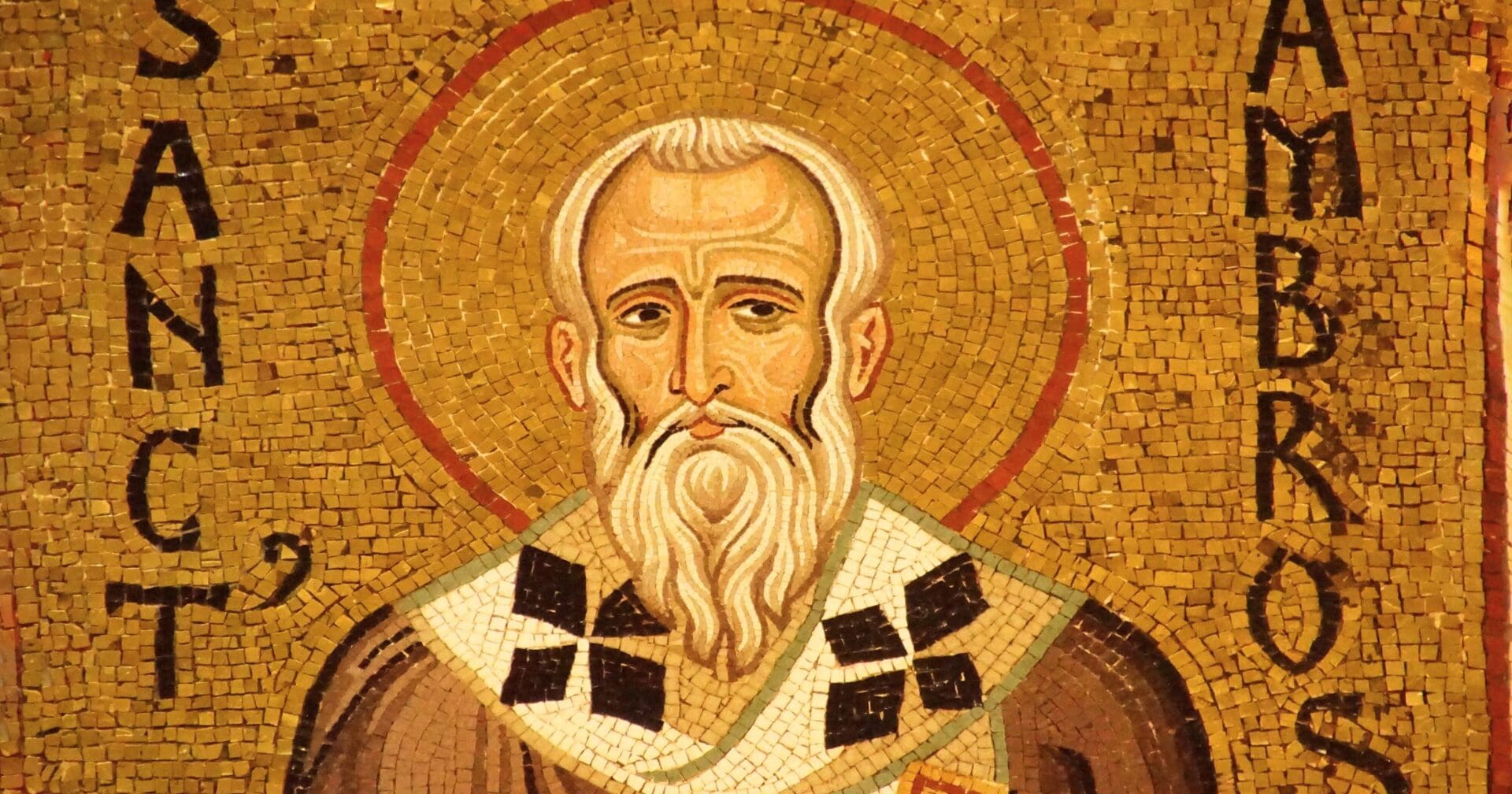
Saint Ambrose (c. 339 – 397AD), a prominent figure in Christian history, is often remembered for his significant impact on contemporaries and his notable role in influencing Saint Augustine. His life was marked by various anecdotes and legends that highlight his distinct character and profound influence.
One such legend recounts that as an infant, Ambrose had a swarm of bees land on his face while he slept in his cradle, leaving behind a drop of honey. This was interpreted by his father as a sign of his future gift for eloquent speech, leading to the frequent association of bees and beehives with his symbology.
Ambrose’s tenure as a religious leader was not without controversy or conflict. He famously clashed with Empress Justina over her attempt to take two basilicas from his Catholic congregation and give them to the Arians. Ambrose’s bold stand against this, even in the face of royal opposition and amidst riots, rallied his followers and demonstrated his unwavering commitment to his faith.
His confrontations extended to the imperial level as well. Ambrose once declared, “The emperor is in the Church, not above the Church,” highlighting his belief in the limits of secular power over religious matters. This principle was notably exemplified when he demanded public penance from Emperor Theodosius for a massacre, a bold move that underscored his moral conviction and authority.
Apart from his public and often confrontational stance, Ambrose was also a figure of deep intellect and spirituality. He greatly influenced Augustine, later known as Saint Augustine, in his conversion to Christianity. Ambrose’s oratory, less entertaining but more scholarly than his contemporaries, was heavily influenced by Cicero and other pagan authors, from whom he borrowed liberally.
His sermons and writings reveal a man deeply involved in the spiritual and intellectual debates of his time, advocating for an otherworldly perspective on humanity and spirituality. He championed consecrated virginity and often focused on the spiritual aspect of humanity, disregarding material concerns in contemplation of God and the soul.
The relationship between Ambrose and Augustine was complex, marked by respectful yet brusque encounters. Augustine’s writings in his “Confessions” reflect a profound respect for Ambrose, indicative of the latter’s significant influence on his spiritual journey. Additionally, Monica, Augustine’s mother, revered Ambrose for his role in transforming Augustine’s beliefs and guiding him towards Christianity, a sentiment culminating in the symbolic act of Ambrose placing his hands on Augustine during his baptism.
Ambrose’s life, thus, presents a multifaceted character: a man of action and confrontation, a learned orator and writer, and a spiritual guide influential in shaping one of Christianity’s most significant figures, Saint Augustine.
Editorial credit: steve estvanik / Shutterstock.com
The post Saint Ambrose appeared first on uCatholic.
Daily Reading
Day of Prayer for the Legal Protection of Unborn Children
Readings for the Day of Prayer for the Legal Protection of Unborn Children Reading 1 Hebrews 7:1-3, 15-17 Melchizedek, king of Salem and priest of God Most High, met Abraham…
Daily Meditation
Healing Our Withered Hearts
Click here for daily readings At first glance, this story is simply about Jesus healing as he does so often in the New Testament and the Pharisees clucking in disapproval….




